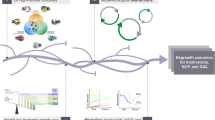Abstract
The use of experimental settings to observe human behaviour in a controlled environment of incentives, rules and institutions, has been widely used by the behavioural sciences for sometime now, particularly by psychology and economics. In most cases the subjects are college students recruited for one to two hour decision making exercises in which, depending on their choices, they earn cash averaging US$ 20. In such exercises players face a set of feasible actions, rules and incentives (payoffs) involving different forms of social exchange with other people, and that in most cases involve some kind of externalities with incomplete contracts, such as in the case of common-pool resources situations. Depending on the ecological and institutional settings, the resource users face a set of feasible levels of extraction, a set of rules regarding the control or monitoring of individual use, and sometimes ways of imposing material or non-material costs or rewards to those breaking or following the rules. We brought the experimental lab to the field and invited about two hundred users of natural resources in three Colombian rural villages to participate in such decision making exercises and through these and other research instruments we learned about the ways they solve - or fail to - tragedies of the commons with different social institutions. Further, bringing the lab to the field allowed us to explore some of the limitations of existing models about human behaviour and its consequences for designing policies for conserving ecosystems and improving social welfare.
Similar content being viewed by others
References
Axelrod, R. (1984) The Evolution of Co-operation, Basic Books Harper Collins, USA.
Berkes, F. (ed.) (1989) Common Property Resources: Ecology and Community-Based Sustainable Development, Belhaven Press, London.
Cardenas, J.-C. (2000a) Real Wealth and Experimental Co-operation: Evidence from Field Experiments, Second Global Development Network Conference GDN2000, December 11–13, 2000, Tokyo, http://www.gdnet.org/awards-shrtlist.htm.
Cardenas, J.-C. (2000b) Rural Institutions, Poverty and Co-operation: Learning from Experiments and Conjoint Analysis in the Field, Doctoral Dissertation, Department of Resource Economics, University of Massachusetts, Amherst.
Cardenas, J.-C., Stranlund, J.K., and Willis, C.E. (2000) Local environmental control and institutional crowding-out, World Development 28(10), 1719–1733.
Hardin, G. (1968) The tragedy of the commons, Science 162, 1245–1248.
Ledyard, J.O. (1995) Public goods: a survey of experimental research, in J.H. Kagel and A.E. Roth (eds) Handbook of Experimental Economics, Princeton University Press.
Ostrom, E. (1990) Governing the Commons: The Evolution of Institutions for Collective Action, Cambridge University Press, Cambridge, New York.
Ostrom, E. (1998). A behavioural approach to the rational choice theory of collective action, American Political Science Review 92(1), 1–22.
Ostrom, E. (2000) El Gobierno de los Bienes Comunes: La Evolución de las Instituciones en la Acción Colectiva, Fondo de Cultura Económica y CRIM, Mexico.
Ostrom, E. (2000) Collective action and the evolution of social norms, Journal of Economic Perspectives 14(3), 137–158.
Ostrom, E., Gardner, R., and Walker, J. (1994) Rules, Games and Common-Pool Resources, U. Michigan Press, Ann Arbor.
Smith, V.L. (1982) Microeconomic systems as an experimental science, American Economic Review 72, 923–955.
Smith, V.L. (1994) Economics in the laboratory, Journal of Economic Perspectives 8, 113–131.
Author information
Authors and Affiliations
Rights and permissions
About this article
Cite this article
Cardenas, JC. How Do Groups Solve Local Commons Dilemmas? Lessons from Experimental Economics in the Field. Environment, Development and Sustainability 2, 305–322 (2000). https://doi.org/10.1023/A:1011422313042
Issue Date:
DOI: https://doi.org/10.1023/A:1011422313042




